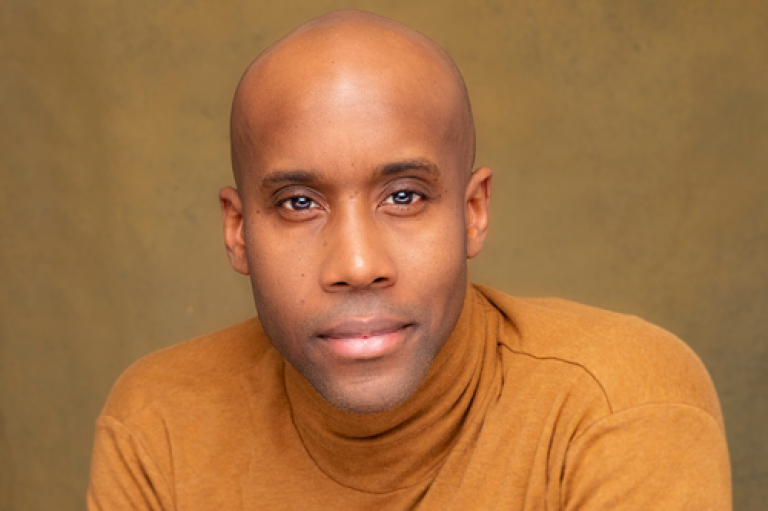Star-studded event welcomes Newsnight negotiator Sam McAlister, writer Armando Iannucci, dancer-turned-techie Prentice Whitlow, choirmaster Gareth Malone and playwright Bonnie Greer.
By Eve Lacroix (Senior Communications Officer), Published (Updated )
In an era of AI, are the human traits of communication and creativity more important than ever?
School launch celebration
Hundreds of students, staff, and alumni attended a City, University of London celebration event for the School of Communication & Creativity (SCC), which saw a star-studded panel of speakers (Sam McAlister, Gareth Malone, Armando Iannucci, Bonnie Greer and Prentice Whitlow) and performances by City students and Creatives in Residence.
The following day, SCC hosted an Open House for the local community. Students gave tours of the facilities, including a visit to the podcasting, radio and TV broadcast studios and the Indonesian gamelan room.
Visitors also enjoyed performances in the Pool, including a DJ set and performances from City’s Creatives in Residence, with Chloe Carterr delivering a spoken word performance and singer-songwriter Joseph Bell performing an unreleased original song. Downstairs in the performance space, community members heard an immersive soundscape.

SCC is bucking higher education sector trends by supporting and investing into the arts, having most recently launched the first-ever MA in Podcasting and creating the Artists in Residence scheme. Its motto is “Create. Communicate. Tell stories.”
Established in 2022, the School combines the renowned Department of Journalism; the Department of Media, Culture and Creative Industries (which is the fastest growing of its kind in the UK); and the Department of Performing Arts, which incorporates the recently acquired Urdang Academy, one of the UK’s finest performing arts colleges, specialising in musical theatre and dance.
Professor Anna Whitelock, Dean of SCC, said:
Creativity and AI
Discussing creativity, AI and their careers were panellists:
- Sam McAlister (former BBC 2 producer, the negotiator for the infamous Prince Andrews Newsnight interview)
- Gareth Malone (choirmaster and broadcaster, presenter of BBC’s The Choir)
- Armando Iannucci (created In the Loop, The Thick of It and Veep, co-writer of the Alan Partridge character)
- Bonnie Greer (playwright, critic, author of the memoir Parallel Life, board of arts organisations)
Prentice Whitlow (award-winning dancer, choreographer, game developer).

Writer and broadcaster Armando Iannucci said:
Gareth Malone, who first appeared on TV in the three-part BAFTA award-winning series The Choir for BBC, said:
Prentice Whitlow, choreographer and digital producer working at the intersection of dance and interactive media, who made a switch from dance to tech, reminded the audience that they did not need to abandon their creative dreams to go into a technical journey. He said:



